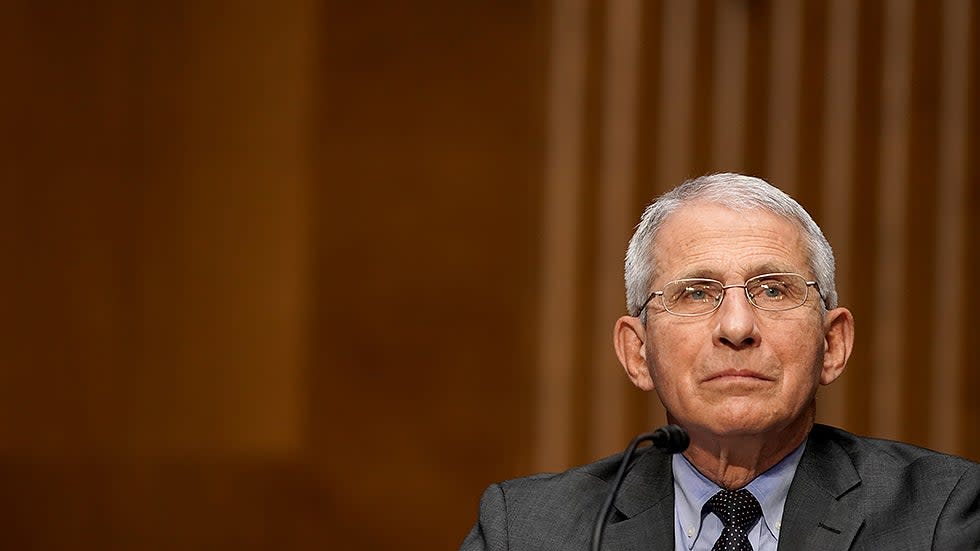Fauci defends omicron travel restrictions

- Oops!Something went wrong.Please try again later.
President Biden's chief medical adviser, Anthony Fauci, on Sunday defended the travel restrictions imposed by the Biden administration and other governments in response to the omicron variant of the coronavirus.
The restrictions on travel from South Africa and other countries in that region were necessary and justified, Fauci said, to give governments and populations time to prepare for the variant, which scientists worry could be more transmissible.
"You know, it will slow things down, George," Fauci told host George Stephanopoulos during an interview on ABC's "This Week."
"Travel bans, when you have a highly transmissible virus, never completely ... prevent it from coming into the country. No way that's going to happen," Fauci said.
"But what you can do is you can delay it enough to get us better prepared. And that's the thing that people need to understand. If you're going to do the travel ban the way we've done now and that we're implementing right now, utilize the time that you're buying to fill in the gaps," Fauci said.
"And by time buying ... you learn more about the virus, you learn what its relationship is to the antibodies induced by vaccines, and, above all, you use this time to really, really put your pedal to the floor and get people vaccinated and get people boosted," he added.
Dr. Anthony Fauci acknowledges there's "no way" travel bans would completely prevent COVID-19 variants from entering the country, but tells @GStephanopoulos that the policies "delay it enough to get us better prepared." https://t.co/G7DDQ1ZhuC pic.twitter.com/gTQrrXr6m2
- This Week (@ThisWeekABC) November 28, 2021
South African officials have criticized the restrictions on travel, which come during a high tourism season for that country. They have also said that the restrictions could lead other countries to not be as transparent about providing information on future COVID-19 variants.
South Africa has been credited by Fauci and others for quickly alerting the world to the news of the new variant.
The United States on Friday announced that it would be restricting travel to eight southern African countries beginning Monday in light of its detection in South Africa. The others are Botswana, Zimbabwe, Namibia, Lesotho, Eswatini, Mozambique and Malawi.
"As a precautionary measure until we have more information, I am ordering additional air travel restrictions from South Africa and seven other countries. As we move forward, we will continue to be guided by what the science and my medical team advises," President Biden said in a statement on the restrictions.

